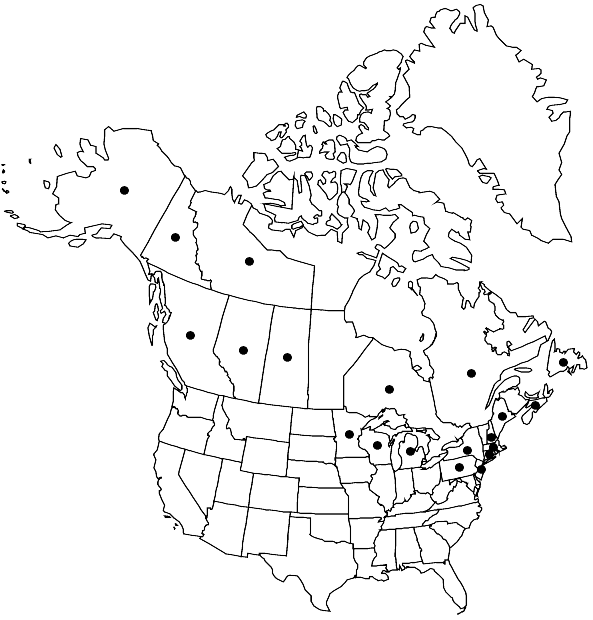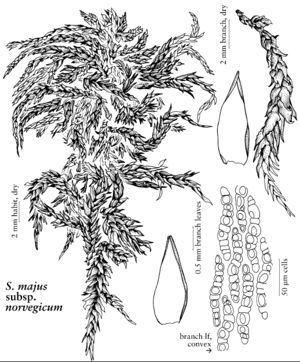familySphagnaceae
genusSphagnum
sectionSphagnum sect. Cuspidata
speciesSphagnum majus
subspeciesSphagnum majus subsp. norvegicum
Sphagnum majus subsp. norvegicum
Kongel. Norske Vidensk. Selsk. Skr. (Trondheim) 2: 1. 1987,.
Plants green, yellow-green, brownish green to golden brown; branches straight to slightly curved. Stem leaves 1–1.4 mm, often spreading. Branch leaves 1.8–3.4 mm, straight to slightly subsecund; hyaline cells on convex surface with mostly 1 pore per fibril interval, pores more than 1/3 cell diameter. Spores 33–40 µm; distal surface finely and densely granulate.
Habitat: Habitat unclear due to recent taxonomic separation from subsp. majus, in North America, subsp. norvegicum seems to occur in weakly minerotrophic habitats such as poor sedge fens, lake edges, and floating mats
Elevation: low to moderate elevations
Distribution

Alta., B.C., Nfld. and Labr. (Nfld.), N.W.T., N.S., Ont., Que., Sask., Yukon, Alaska, Conn., Maine, Mass., Mich., Minn., N.H., N.J., N.Y., Pa., Wis., Eurasia?.
Discussion
Sporophytes of subsp. norvegicum are uncommon. See discussion under 23. Sphagnum annulatum. Spore features are taken from from Flatberg’s description.
Selected References
None.
Lower Taxa
None.
... more about "Sphagnum majus subsp. norvegicum"
Habitat unclear due to recent taxonomic separation from subsp. majus, in North America, subsp. norvegicum seems to occur in weakly minerotrophic habitats such as poor sedge fens, lake edges, and floating mats +
Present +
Kongel. Norske Vidensk. Selsk. Skr. (Trondheim) +
1753 +
Sphagnum majus subsp. norvegicum +
Sphagnum majus +
subspecies +
